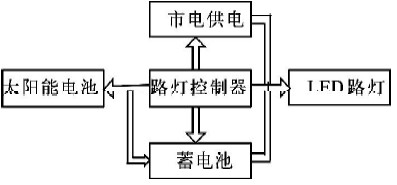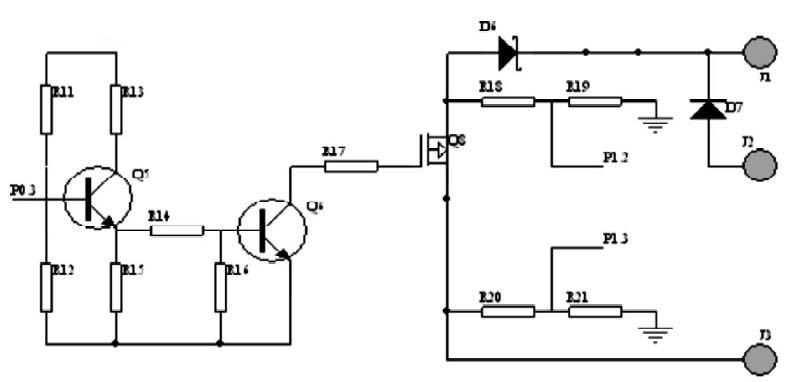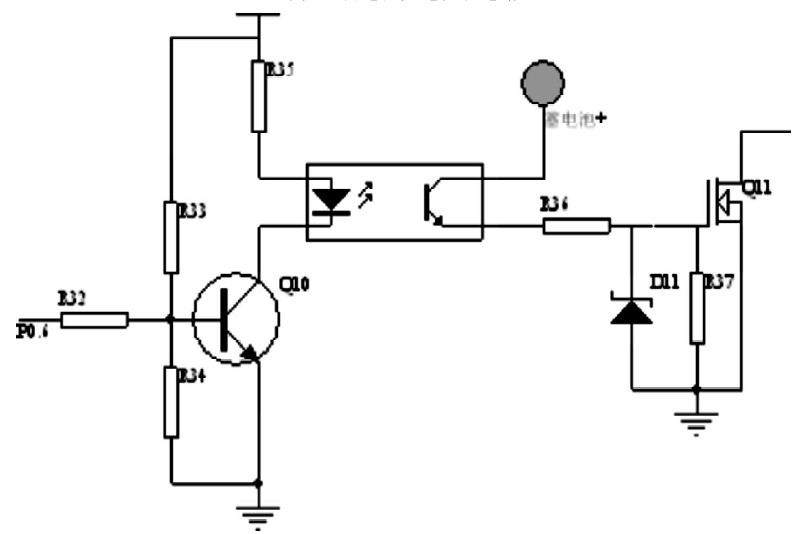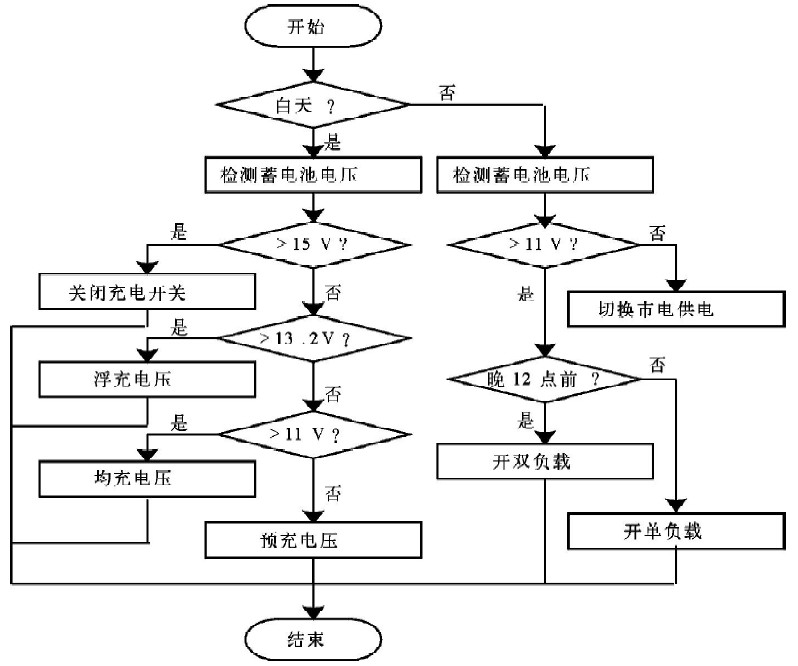
Privacy statement: Your privacy is very important to Us. Our company promises not to disclose your personal information to any external company with out your explicit permission.
Abstract: According to the characteristics of LED solar street light system, a solar street light controller is designed. The hardware design principle of battery charging control and load output control is described in detail, and the software design of the controller is realized by three-stage charging theory. The controller function is easy to implement and meets the requirements of control and environmental protection.
1 Introduction
As an emerging green energy source, solar energy is rapidly being promoted and applied with its advantages of never being exhausted and pollution-free. LED has small size, strong and durable, low power consumption, long life, environmental protection, good light color performance, etc. There are data showing that the annual power for lighting is more than 300 billion degrees. If LED lighting is used, it can be used every year. Saving 1/3 of the electricity used for lighting is basically equivalent to the annual power generation of the Three Gorges Project with a total investment of more than 200 billion yuan. Since the output of the solar panel is DC power, and the LED is also a DC driving source, the combination of the two can improve the efficiency of the whole system and reduce the municipal cost, so the LED solar street lamp has received more and more attention.
2 LED solar street light system structure
LED solar street light system shown in Figure 1, it can be seen that it consists of solar cells, street light controllers, batteries, mains power supply and LED street lights, which are used to convert solar energy into electricity, that is, daytime The solar cell charges the battery, and the degree of light can be judged according to the magnitude of the voltage across the solar cell. That is, judging from the magnitude of the solar cell voltage, it is dark and dawn. The battery is the reserve energy device of the entire solar system. The solar battery charges the battery during the daytime, and the system and load power are supplied by the battery at night or in the rainy day.

Figure 1 LED solar street light system
3 street light controller hardware design
The solar street light controller is the most important component in the solar street light system, and its functional design determines the quality of a solar street light system. The functions that the street lamp controller needs to realize are: according to the brightness of the sun, the LED street light is disconnected during the day to charge the battery, and the street lamp is powered by the battery at night, and the power can be adjusted in a time interval, and when the battery is insufficient, the power is automatically switched to the mains supply. System; prevent battery overcharge and over discharge, with short circuit protection and reverse connection protection.
According to the control functions that need to be realized, this paper chooses STM8 single-chip microcomputer to control the LED solar street light system.
The main functions of the MCU include detecting the voltage across the battery and adopting different charging modes according to different states; judging day and night and switching the battery charging and discharging modes and switching to the mains supply system.
The street lamp controller includes a plurality of circuit modules, such as a power module, a reset module, a clock module, etc., and the voltage detecting module, the battery charging and discharging module, and the switching module are important to the entire controller to the entire solar street lamp system.
3.1 Battery charging control circuit
It is known from the realization function of the controller that the solar battery charges the battery during the day and is used for LED street lighting at night or on cloudy days to achieve the purpose of environmental protection and energy saving. Therefore, the battery charging control circuit plays an important role in the solar street lamp control system. In this paper, the principle of chopper-type PWM charging is adopted. The single-chip microcomputer first detects the voltage across the battery and compares it with the set voltage in the software to select different charging methods. The specific control circuit is shown as in Fig. 2, in which J1 and J3 are the positive poles of the battery and the solar cell respectively, and the mouth of the single chip samples the solar cell voltage and the battery voltage through R20, R21, R18 and R19 respectively, and judges by AD conversion. Under the condition of satisfying charging or stopping charging, the charging control signal is given by the P0.3 port of the single-chip microcomputer, so that the triode S is turned on or off, and the battery charging can be realized, and the programming part can be specifically seen. In the figure, D6 is an anti-backup Schottky diode, which prevents the battery from being reversely charged to the solar cell when the battery voltage is higher than the solar cell voltage. D7 is a protection diode. When the battery is reversed, the circuit is disconnected to protect the battery and improve the reliability of the system.

Figure 2 battery charging control circuit
3.2 load output control circuit
In order to use different brightness at different times in the night to save energy, the system designed two load outputs. Before 12 o'clock in the evening, the two LEDs are on, and after 12 o'clock, one is lit, and each output is connected. Control and detection. The design uses PWM power control to achieve stepless dimming of LED luminaires. The single path principle is shown in Figure 3. The P0.6 port of the single-chip microcomputer gives the control signal, that is, when P 0 . 6 = 1, the triode is turned on, the relay is closed, the MOS tube is turned on, and the battery supplies power to the street lamp. When the battery is low or during the day, the control terminal outputs a low level signal to cut off the power supply circuit. When the battery power is insufficient at night, the LED power supply system supplies power to the LED street lamp to ensure the integrity and reliability of the system.

Figure 3 load output control circuit
4 system software design
The controller can automatically detect the current state. First, according to the voltage across the solar cell, it is detected whether the current state is day or night, and then the charging mode or the discharging mode is selected. In the charging mode, different charging modes are selected according to the voltages at both ends of the battery. For example, when the charging voltage is higher than the protection voltage (15V), the battery is automatically turned off, and then when the voltage drops to the maintenance voltage (13.2V), When the battery enters the floating state, when it is lower than the maintenance voltage (13.2V), the float is turned off and enters the equalization state.
During the discharge process, first ensure that two loads are turned on before 12 o'clock in the evening, and one load is turned on after 12 o'clock, and when the battery voltage is lower than the protection voltage (11V), the controller automatically switches to the mains supply system or turns off the load switch. To protect the battery from damage. Therefore, charging management and discharge management are the main contents in the system software design. The charging and discharging program flow chart is shown in Figure 4:

Figure 4 charging and discharging program flow chart
5 Conclusion
As an inexhaustible and clean energy source, solar energy will surely receive more and more attention and utilization. High-efficiency and environmentally-friendly solar LED street lamps will also become more choices for municipal renovation and expansion projects. According to the control needs of solar street lamps, this paper designs the solar street lamp controller from the hardware structure and software development. The controller has strong anti-interference ability and easy control.
July 03, 2023
July 03, 2023
Gửi email cho nhà cung cấp này
July 03, 2023
July 03, 2023

Privacy statement: Your privacy is very important to Us. Our company promises not to disclose your personal information to any external company with out your explicit permission.

Fill in more information so that we can get in touch with you faster
Privacy statement: Your privacy is very important to Us. Our company promises not to disclose your personal information to any external company with out your explicit permission.